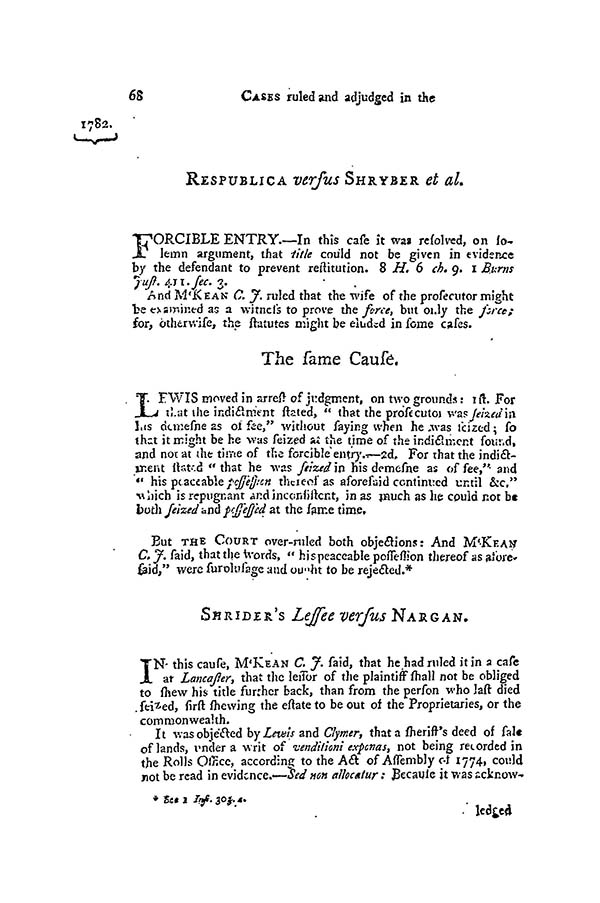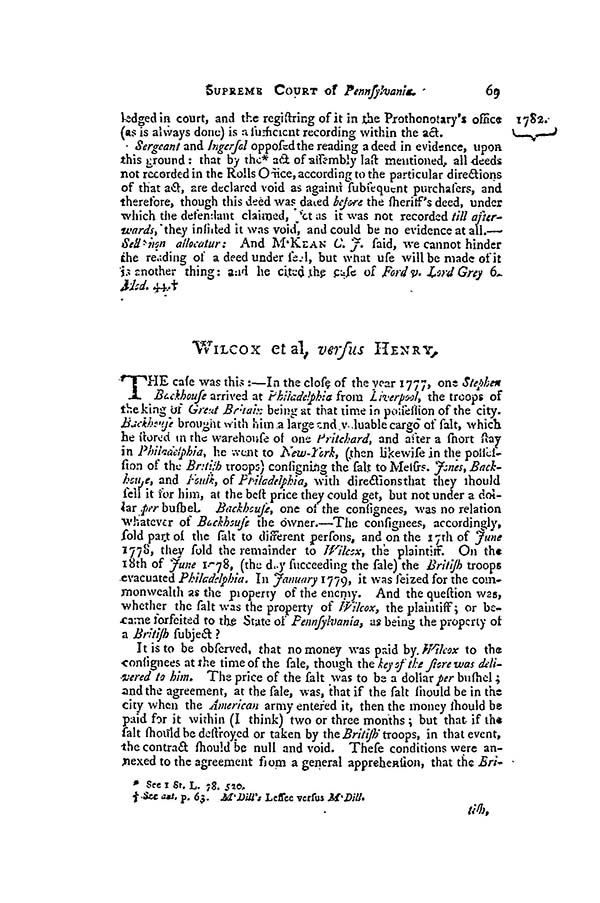Respublica v. Shryber, 1 Dall. 68 (Pa. 1782) and Shrider's Lessee v. Nargan, 1 Dall. 68 (Pa. 1782)
Supreme Court of Pennsylvania
April Term, 1782
Respublica versus Shryber et al.
Forcible Entry.—In this case it was resolved, on solemn argument, that title could not be given in evidence by the defendant to prevent restitution. 8. H. 6 ch. 9. I Burns Just. 411. sec. 3.
And M'Kean C.J. ruled that the wife of the prosecutor might be examined as a witness to prove the force, but only the force; for, otherwise, the statutes might be eluded in some cases.
The same Cause.
Lewis moved in arrest of judgment, on two grounds: 1st. For that the indictment stated, "that the prosecutor was seized in his demese as of fee," without saying when he was seized; so that it might be he was seized at the time of the indictment found, and not at the time of the forcible entry.—2d. For that the indictment statement "that he was seized in his demense as of fee" and "his peaceable possession thereof as aforesaid continued until &c." which is repugnant and inconsistent, in as much as he could not be both seized and possessed at the same time.
But the court over-ruled both objections: And M'Kean C.J. said, that the words, "his peaceable possession thereof as aforefaid," were surplusage and ought to be rejected.*
Citation: Respublica v. Shryber, 1 U.S. 68, 1 Dall. 68 (Pa. 1782)
Shrider's Lessee versus Nargan
In this cause, M'Kean C. J. said, that he had ruled it in a case at Lancaster, that the lessor of the plaintiff shall not be obliged to shew his title further back, than from the person who last died seized, first shewing the estate to be out of the Proprietaries, or the commonwealth.
It was objected by Lewis and I, that a sheriff's deed of sale of lands, under a writ of venditioni exponas, not being recorded in the Rolls Office, according to the Act of Assembly of 1774, could not be read in evidence.—Sed non allocatur: Because it was acknowledged
* See 1 St. L. 78. 520.
† See ant. p. 63. M'Dill's Lessee versus M'Dill.
Citation: Shrider's Lessee v. Nargan, 1 U.S. 68, 1 Dall. 68 (Pa. 1782)


Last modified: December 11, 2014